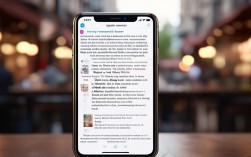Politeness in IELTS Speaking
Politeness is a crucial element in effective communication, especially in high-stakes assessments like the IELTS Speaking test. It not only demonstrates respect for the examiner but also showcases your ability to engage in socially appropriate interactions. Understanding how to incorporate politeness into your responses can significantly enhance your performance, as it reflects cultural awareness and emotional intelligence.

Why Politeness Matters in IELTS Speaking
The IELTS Speaking test evaluates your ability to communicate fluently, coherently, and appropriately. Politeness falls under the "lexical resource" and "fluency and coherence" criteria, as it involves using respectful language and structuring responses thoughtfully. Examiners assess whether candidates can maintain a courteous tone, even when discussing challenging topics. For instance, disagreeing politely or expressing hesitation gracefully can leave a positive impression.
Moreover, politeness helps build rapport with the examiner. A friendly and respectful demeanor can create a more comfortable testing environment, allowing you to perform more naturally. This is particularly important in Part 1, where casual conversation sets the tone for the rest of the test.
Key Politeness Strategies for IELTS Speaking
-
Use Modal Verbs and Softening Phrases
Modal verbs like "could," "would," and "might" add a layer of politeness. For example, instead of saying, "I disagree," try, "I see your point, but I might have a different perspective." Softening phrases such as "I’m not entirely sure, but I think..." or "That’s an interesting question; perhaps..." show humility and respect. -
Active Listening and Acknowledgment
In Part 3, where discussions become more abstract, acknowledging the examiner’s points demonstrates engagement. Use phrases like "That’s a valid point," or "I understand what you mean." This not only shows politeness but also improves coherence by linking your ideas to the conversation. -
Appropriate Body Language and Tone
While the Speaking test is conducted verbally, your tone of voice and pacing contribute to politeness. A calm, moderate tone and avoiding interruptions convey respect. Even if you’re nervous, maintaining a composed demeanor reflects well on your communication skills. -
Gratitude and Closing Remarks
At the end of the test, a simple "Thank you for your time" or "I appreciate the opportunity to speak with you" leaves a lasting positive impression. Small gestures of gratitude underscore your politeness and professionalism.
Common Politeness Mistakes to Avoid
| Mistake | Example | Correction |
|---|---|---|
| Being overly direct | "You’re wrong." | "I’m afraid I have to disagree with that." |
| Interrupting the examiner | "But that’s not true!" | "If I may add something..." |
| Using slang or informal language | "Yeah, it’s kinda cool." | "Yes, I find it quite appealing." |
| Ignoring the examiner’s cues | (Continuing to speak when asked to stop) | "Thank you for the clarification; I’ll keep that in mind." |
FAQs About Politeness in IELTS Speaking
Q1: Can being too polite hurt my score?
A1: Not necessarily. While excessive formality might sound unnatural in casual conversations, politeness is always appreciated. The key is to strike a balance—use respectful language without sounding stiff. For example, in Part 1, a friendly tone is appropriate, while Part 3 may require slightly more formal phrasing.
Q2: How can I practice politeness in my preparation?
A2: Practice with a partner or record yourself answering sample questions. Focus on incorporating politeness phrases naturally. You can also listen to native speakers in interviews or podcasts to observe how they maintain polite tones. Additionally, simulate test conditions and ask for feedback on your tone and word choice.
In conclusion, politeness is an often-overlooked yet powerful tool in the IELTS Speaking test. By mastering polite language, active listening, and respectful body language, you can not only improve your score but also become a more effective communicator in real-life situations. Remember, the goal is to engage meaningfully while demonstrating cultural sensitivity and emotional intelligence.











